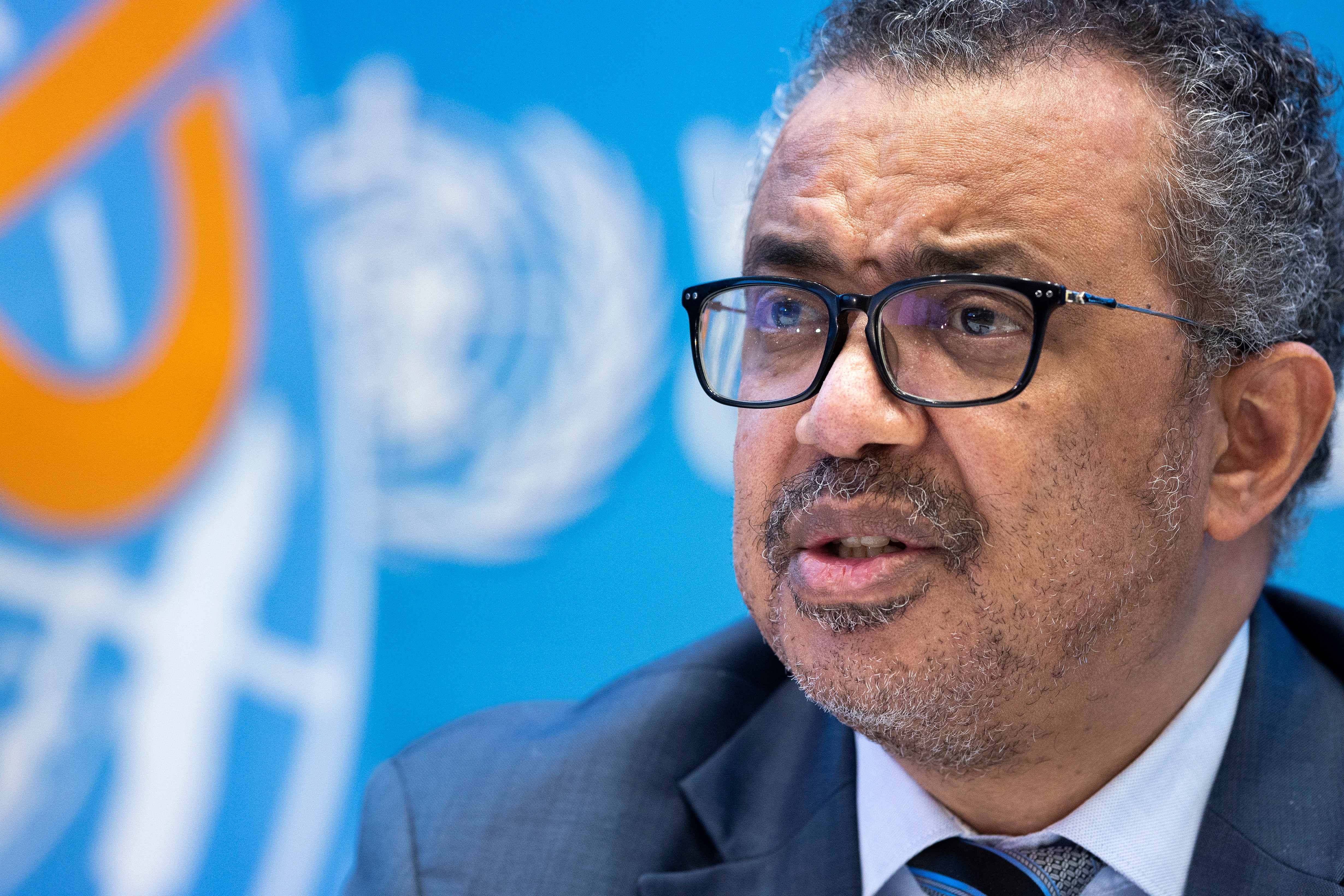WHO chief: Lack of help for Tigray crisis due to skin color
The head of the World Health Organization has described the persistent crisis in Ethiopia’s Tigray region as “the worst disaster on Earth” and asked if the reason global leaders haven't responded is due to “the color of the skin" of the people who live there

Your support helps us to tell the story
From reproductive rights to climate change to Big Tech, The Independent is on the ground when the story is developing. Whether it's investigating the financials of Elon Musk's pro-Trump PAC or producing our latest documentary, 'The A Word', which shines a light on the American women fighting for reproductive rights, we know how important it is to parse out the facts from the messaging.
At such a critical moment in US history, we need reporters on the ground. Your donation allows us to keep sending journalists to speak to both sides of the story.
The Independent is trusted by Americans across the entire political spectrum. And unlike many other quality news outlets, we choose not to lock Americans out of our reporting and analysis with paywalls. We believe quality journalism should be available to everyone, paid for by those who can afford it.
Your support makes all the difference.The head of the World Health Organization described the persistent crisis in Ethiopia’s Tigray region as “the worst disaster on Earth” and wondered aloud Wednesday if the reason global leaders have not responded was due to “the color of the skin of the people in Tigray.”
In an emotional statement at a press briefing, WHO Director-General Tedros Adhanom Ghebreyesus - himself an Ethnic Tigrayan - said the situation caused by the ongoing conflict in his home country is worse than any other humanitarian crisis in the world.
Tedros asserted that the 6 million people in Tigray essentially cut off from the world have been “under siege” for the last 21 months. He described the Ukraine conflict as a crisis that has the global community potentially “sleepwalking into a nuclear war" that could be “the mother of all problems,” but argued the disaster in Tigray was far worse.
“I haven’t heard in the last few months any head of state talking about the Tigray situation anywhere in the developed world. Anywhere. Why?” Tedros asked.
“Maybe the reason is the color of the skin of the people in Tigray.” he said.
In April, Tedros questioned if the world's overwhelming focus on Russia's war in Ukraine was due to racism, although he acknowledged the conflict there had global consequences.
The conflict in Ethiopia began in November 2020, and little humanitarian aid arrived after Tigray forces retook much of the region in June 2021. Aid has started flowing more substantially in the past few months but is widely described as inadequate to meet the needs of the millions of people essentially trapped there.
The resumption of basic services and banking remains a key demand of the Tigray regional leaders. Journalists have not been allowed in.
Tedros said the people of Tigray had no access to medicine and telecommunications and were prevented from leaving the region. However, the International Committee of the Red Cross in recent months has reported shipments of some medications.
“Nowhere in the world you would see this level of cruelty, where it’s a government (that) punishes 6 million of its people for more than 21 months,” the WHO chief said. “The only thing we ask is, ‘Can the world come back to its senses and uphold humanity?’”
Tedros called on both the Ethiopian and Russian governments to end the crises in Tigray and Ukraine.
“If they want peace, they can make it happen and I urge them both to resolve th(ese) issue(s),” he said.
Also Wednesday, Ethiopia's foreign ministry said a government peace committee had adopted a peace proposal “that would lead to the conclusion of ceasefire” and that it woudl be shared with the African Union envoy working on mediation. Basic services would follow a ceasefire, the statement said.
Tigray forces spokesman Getachew Reda dismissed the government statement, asserting in a tweet that “if anything, the Abiy Ahmed regime has made it abundantly clear that it has no appetite for peaceful negotiations except as delaying tactics.”
In a sign of just how cut off Tigray has been, a COVID-19 vaccination campaign was finally launched at the region’s flagship hospital only in July, an improvement from a months-long period of deprivation in which hospital workers described running out of essential medicines and trying to treat wounds with warm salt water. It was the first COVID-19 vaccination campaign in Tigray.
This was not the first time the WHO chief has spoken out about Tigray.
Earlier this year, the government of Ethiopia sent a letter to the World Health Organization, accusing Tedros of “misconduct” after his sharp criticism of the war and humanitarian crisis in the country.
The Ethiopian government said Tedros was using his office “to advance his political interest at the expense of Ethiopia” and said he continues to be an active member of the Tigray People’s Liberation Front; Tedros was Ethiopia’s foreign minister and health minister when the TPLF dominated the country’s ruling coalition.
When Tedros was confirmed for a second term as head of WHO, it was the first time a candidate's home country had failed to nominate their own candidate.
___
Cheng reported from London.